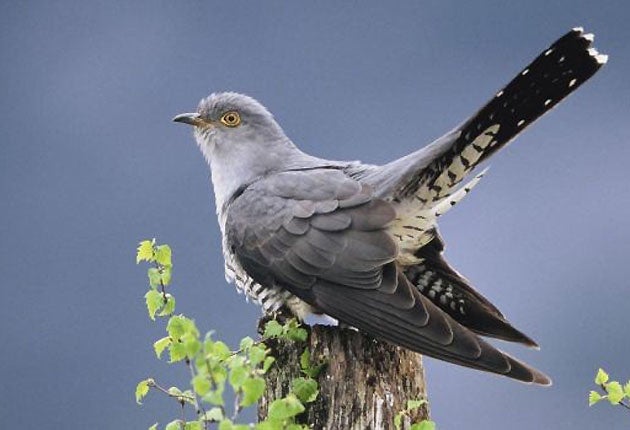African probe into riddle of our disappearing birds

It has become one of Britain’s most troubling wildlife mysteries: why are some of our best-loved birds, all of them summer visitors from Africa, plunging in numbers?
Drastic declines are occurring in a range of migratory species, from the cuckoo to the nightingale and from the turtle dove to the wood warbler, leaving bird lovers in many places bereft at the loss of the creatures which have always arrived with the spring.
But now the mystery is being seriously investigated. Britain’s leading bird research organisations, the Royal Society for the Protection of Birds (RSPB) and the British Trust for Ornithology (BTO) have mounted a joint expedition to the African regions south of the Sahara, where the birds spend the winter, to examine what may be happening there.
Today, eight out of 10 of our most rapidly declining species are sub-Saharan migrants, with the turtle dove heading the list – it has gone down by 66 per cent since 1994. Other species are close behind: the latest figures show that the wood warbler has declined in Britain by 60 per cent since the same date, the pied flycatcher by 51 per cent, the yellow wagtail by 49 per cent, the whinchat by 43 per cent, the nightingale by 41 per cent, the spotted flycatcher by 38 per cent and the cuckoo by 37 per cent. In England alone, the cuckoo has declined by 55 per cent in 15 years.
The RSPB/BTO expedition is examining the range of habitats in West Africa to which many of these species annually return. It will involve researchers monitoring birds along a corridor stretching from Ghana’s Atlantic coast to northern Burkina Faso, spanning a range of habitats from coastal rainforest to the edge of the Sahara.
“Although we have a reasonable understanding of these birds in the UK, we have little or no idea what’s happening to them in their wintering grounds,” said the RSPB’s Dr Danaë Sheehan, one of the team. “But it’s clear that without help these declines are likely to continue, reducing the populations of these summer visitors to dangerously low levels.”
Dr Chris Hewson, research ecologist at the BTO, said: “If we are to reverse these alarming declines we need to act now. To do this we need to better understand where these birds spend the winter months and what pressures they face there.”
A number of potential causes for the decline of migrants have been suggested, including climate change, changes in rainfall patterns, and land degradation. Predicted increases in human population and climatic variability in West Africa are likely to exacerbate these threats.
Dr Hewson said that current research was focused on the birds during their breeding season in Britain. “However, problems on the wintering grounds could also be driving the declines, in particular, the predicted increase in the human population and the associated change of land use,” he said. “These birds are facing a double whammy, and to help them we need to be looking at both ends of their migration.”
Subscribe to Independent Premium to bookmark this article
Want to bookmark your favourite articles and stories to read or reference later? Start your Independent Premium subscription today.

Join our commenting forum
Join thought-provoking conversations, follow other Independent readers and see their replies